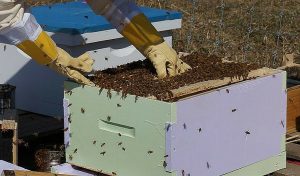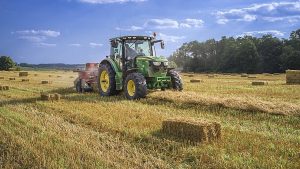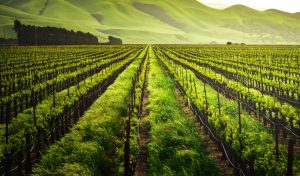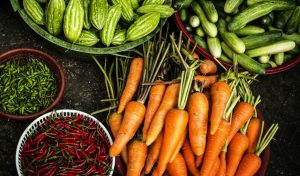Advantages and Disadvantages of Technology in Agriculture: Agriculture is a significant industry since it accounts for supplies of food for millions of people all over the world. Agriculture also accounts for a significant amount of GDP in many nations. It is common knowledge that advances in technology are changing the way people handle many parts of farming operations. Agriculture, like every other industry, has profited from technological advancements. The agriculture industry has benefited greatly from technological advancements. Agricultural biotechnology has made it feasible to cultivate crops in the desert today. Plants have been developed to survive in droughts thanks to this technique.
Scientists have been able to add features to existing genes through genetic engineering, with the objective of producing drought- and pest-resistant crops. Agriculture and farming, as we can see, are vastly different than they were in the past, thanks to the use of contemporary technologies.
Farmers, for the most part, employ high-tech equipment, gear, and sensors in their farming operations. They employ the most cutting-edge agricultural technology currently accessible. In this piece, I’ll discuss the benefits and drawbacks of agricultural technology.

Recommended: Most Capitalist Countries In The World 2022
Overview Of Technology In Agriculture
Agricultural technology, often known as agrotechnology, is the use of technology in agriculture, horticulture, and aquaculture with the goal of increasing output, efficiency, and profitability. Agricultural technology refers to goods, services, or applications that improve different products that are developed from agriculture.

Agricultural technology has evolved as a result of advances in agricultural science, agronomy, and agricultural engineering. Technological advancements have changed the history of agriculture. A number of agricultural revolutions have been identified by historians as substantial transformations in agricultural practice and output. These revolutions were inextricably linked to technical advancements.
Recommended: Differences Between Void and Illegal Contract
Some Of The Technologies Used In Agriculture
Each farmer employs this technology in his or her own unique way. It’s used by some to make fertilizers, by others to sell their business, and by still others to manufacture goods. As a result, you must outline your requirements as a farmer.
The use of technology in agriculture is summarized below:

a. Machinery: A farmer may now cultivate more than 2 acres of land with less effort and save even more money by purchasing a secondhand tractor and other harvesting technologies rather than new equipment. Planters and harvesters make the procedure quite simple.
b. Genetically Modified Plants: Some genetically modified plants, such as potatoes, can withstand diseases and pests, providing excellent harvests and saving time for farmers. These plants develop quickly and generate high yields. Because they are resistant to most illnesses and pests, the farmer will use fewer pesticides, increasing their return on investment (ROI).
Also see: Advantages and Disadvantages of Being a Leader
c. Transportation: This aids in the timely delivery of crops from the farm to markets. Consumers in Dubai will be able to taste fresh carrots from Africa on the same day that they are harvested from the African garden, thanks to contemporary transportation. Farmers can quickly carry fertilizers or other farm materials to their farms thanks to modern transportation technology, and agricultural products may also be delivered faster from fields to marketplaces where customers can buy them on a regular basis.
d. Cooling Facilities: These are used by farmers to carry tomatoes and other perishable commodities to markets while keeping them fresh. These cooling systems are fitted in food distribution trucks to ensure that fresh produce, such as tomatoes, is delivered.
e. Animals That Are Resistant To Illnesses: In comparison to natural animals, most of these genetically modified animals will produce more milk or fur. This is advantageous to the farmer since their output will be increased. Crossbreeding is beneficial to animal grazing because crossbred animals are stronger and more productive.
Recommended: Advantages and Disadvantages of Social media to Students
f. Plants Irrigation: Farmers in arid locations such as deserts have turned to technology to irrigate their crops. Farmers in Egypt, for example, utilize water pumps to gather water from the Nile River and deliver it to their crops.
Most of these farmers plant rice, which requires a lot of water, thus they use irrigation technologies that have been improved by sophisticated technology to grow this rice.
g. Accurate Yield Predictions: Before crops are harvested, some agriculture technology will allow farmers to anticipate yields promptly. Growers will be able to sell their entire produce, reducing food waste and improving profitability.
h. Modern Greenhouses: It has progressed from small-scale to large-scale facilities. The agriculture business is expanding like never before, thanks to remarkable recent technological advancements. Large-scale enterprises are increasingly using modern greenhouse systems.
Recommended: Most profitable skills to learn 2022
i. Drone Farming: Drones are utilized in agriculture to deliver more frequent and cost-effective remote crop and livestock monitoring. Drones in agriculture are an efficient way for sustainable agricultural management since they allow farmers to simplify their operations and get valuable insights into their crops.
j. Vertical Farming: Vertical farming refers to the cultivation of plants, animals, and other living forms for food, fuel, fiber, or other purposes. The benefits of vertical farming are numerous. Vertical farming can take place in converted warehouses, greenhouses, and other structures that aren’t ideal for large-scale agriculture.

Recommended: Differences Between Indemnity And Guarantee
Advantages of Technology in Agriculture
1. Productivity Is Boosted By Technology: Agriculture has seen a significant boost in productivity as a result of technology; farmers can now do more work with less effort and in less time.
There are several sophisticated technology instruments and tools that can help farmers boost their farming production. In agriculture, tractors, automated in-row weeders, robotic lettuce harvesters, carrot harvesters and separators, and other technology devices are utilized to boost production.

Farmers operate more efficiently with the aid of current technology since it decreases the amount of labor they have to do in the field.
2. Improved Transportation: Farmers can now travel more easily thanks to technology. They can readily transfer products from one location to other.
Trucks and tractors are commonly used to transfer crops from one location to another. Farmers utilized buffalo carts to transfer corps from one location to another before modern technology.
This was a challenging task for them because traveling by buffalo cart took a long time. However, because of advancements in transportation technology, they may now readily travel from one location to another.

Recommended: Advantages And Disadvantages Of Using Herbal/Traditional Medicine
3. Modern Technology Has Made Water Supply Simple: The farmers had a terrible time getting water to their farms. They used to transport water to the fields in bowls, which took a long time and cost the farmers a lot of money.
However, people may now readily obtain water in their fields thanks to current technological machinery and devices. Water delivery to the field may be accomplished with ease using contemporary technologies. For providing water to their farms, they can utilize water turbines, pipelines, drones, and many other technologies. It saves the farmers a lot of time and works in terms of field water supply.
4. Technology Saves Money: Using current agricultural technology can help farmers save money. With the help of modern technologies, farmers may work more efficiently, with less effort, and in less time. With modern technology, work that formerly required a big number of people and a lengthy period of time may now be accomplished swiftly and cheaply. Farmers are not compelled to pay a separate price for their services.

Recommended: Differences Between Entrepreneurship and Intrapreneurship
5. Technology Saves Time: As we all know, the primary goal of technology is to help individuals save time while they work. In agriculture, technology also saves a lot of time for farmers. Modern technical equipment and machinery operate at a far faster rate than people do.
If a farmer can cultivate a field in a week, they can do so in a day with the assistance of technology. This is how much time farmers save thanks to current technologies.
6. Trading And Business Are Boosted By Technology: Agriculture’s commerce and business are being boosted by modern technologies. They may simply sell their goods to market and increase their trade and business with the assistance of technology.
With the use of technology, they can simply transport and sell their corpses to other locations. They may easily contact and interact with purchasers using contemporary technology, and sell their products, fruits, and vegetables to them.
They may also use digital marketing to sell their harvests, fruits, and vegetables to customers online. This is how agricultural commerce and business may be boosted with the aid of current technologies.
7. Technology Helps To Boost Soil Fertility: With the help of modern technologies, farmers may easily increase the fertility of their soil farming. There are a variety of devices on the market that can evaluate soil fertility and assist us in caring for our agricultural land in order to increase fertility. A variety of chemicals are also being researched to improve soil fertility. Using this strategy, farmers may improve soil fertility.
8. Farmers’ Workloads are Reduced by Technology: The primary goal of modern technology is to lower people’s labor efforts so that they can work more efficiently. Farmers’ efforts in agriculture are greatly reduced by modern technologies.
If some farming tasks demand a large number of farmers and a lot of effort, they can be simply completed by contemporary technology with lesser effort and farmers.
Recommended: 3 Main Punishment Theories in Law Explained
Disadvantages Of Technology In Farming
1. High Costs of Maintenance: One of the downsides of agriculture technology is its high maintenance costs. The hefty maintenance costs of the technology make it tough for small enterprises and farmers to handle.
Farmers find it difficult to keep up with technology since they cannot afford the high maintenance costs of contemporary technical gadgets and machines.
2. Environmental Detriment: The majority of technical machinery and devices pollute our environment, which is extremely detrimental to humans. Tractors, trucks, and a variety of other large machinery are overused, resulting in harmful chemical fumes and carbon dioxide in our environment.
As a result, our environment has become contaminated and hazardous to people and other living creatures.
Recommended: Difference Between Simple Interest and Compound Interest
3. Use Of Fertilizers And Pesticides: Fertilizer and pesticide use generate a slew of issues. Fertilizers and insecticides are good for the health and output of plants. However, it has a number of negative consequences for plants and other living beings.
Excessive use of fertilizers and pesticides poisons plants and crops, posing serious health risks to humans and other living creatures. It also pollutes the soil and water.
4. Farmers Who Are Undereducated: The majority of farmers are illiterate, and understanding how to use current technologies in farming is challenging.
They farm in traditional methods, and using contemporary technology in farming is challenging for them since they don’t fully comprehend the benefits and risks of using technology in agriculture. This is also one of the drawbacks of current agriculture technology; not everyone can benefit from it. The majority of farmers are unable to correctly use contemporary technical gadgets and machines.
Recommended: Differences Between Void And Voidable Marriage
5. Significant Reduction Of Soil Fertility: Excessive use of technology in the fields depletes the soil’s fertility. One of the most serious drawbacks of technology in agriculture is that it diminishes soil fertility. The soil of the fields is harmed and fertility is reduced as a result of excessive use of technology.
Fertilizers and chemicals can boost productivity, but they can deplete soil fertility over time. Excessive use of fertilizers and many chemicals used for agriculture may also harm the soil.
6. Impact On Health: Overuse of fertilizers and pesticides has been proven in several studies to have negative health consequences. Overuse of pesticides has the disadvantage of killing soil organisms that are helpful to the plant and aid in its growth. Aside from that, it has the potential to contaminate the topsoil. For the time being, nothing else will grow. Pesticides and fertilizers are both known to have negative effects on human health; even minor skin contact with some of them can cause severe discomfort.
7. Unemployment: Workers’ services are at risk of being replaced by machines as a result of the adoption of some technological advancements in agriculture. Some of these technologies significantly reduce the demand for human employees, resulting in the development of unemployment, which is harmful to society.
Recommended: Richest Doctors In The World and their Networth 2022
Conclusion
Farmers benefit greatly from the use of new technological advancements in agriculture. It allows farmers to operate more efficiently and effectively. Agriculture employs a large number of technology instruments and machines. For farmers in agriculture, it saves a lot of time and work. Farmers can perform a lot of work in a short amount of time with the aid of contemporary technologies. Technology, on the other hand, has certain negative consequences that we must acknowledge. We must remember how much technology harms us before we use it.

Edeh Samuel Chukwuemeka, ACMC, is a lawyer and a certified mediator/conciliator in Nigeria. He is also a developer with knowledge in various programming languages. Samuel is determined to leverage his skills in technology, SEO, and legal practice to revolutionize the legal profession worldwide by creating web and mobile applications that simplify legal research. Sam is also passionate about educating and providing valuable information to people.